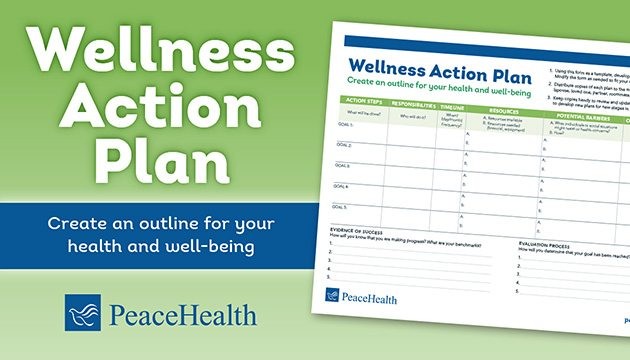
Health goals, when approached thoughtfully, can be a source of empowerment, structure, and long-term well-being. Yet in a culture that often celebrates extremes—whether it is restrictive diets, grueling fitness regimens, or constant tracking of metrics—there is a fine line between commitment and obsession. The danger arises when the pursuit of health becomes rigid, consuming, and counterproductive, ultimately undermining the very balance it is meant to create. Managing health goals effectively requires both discipline and perspective, an ability to stay consistent while recognizing that perfection is neither realistic nor necessary.
At the core of this balance is understanding that health is not a single project with a deadline but an ongoing process, much like managing a business. Companies do not succeed by demanding flawless results every day; they succeed through adaptability, resilience, and the capacity to adjust strategies as circumstances evolve. In the same way, personal health goals should be seen as part of a long-term framework, where flexibility allows progress without creating unnecessary pressure. For example, someone training for a marathon may set a structured schedule of runs, but if illness or a heavy workload disrupts a week, the ability to recalibrate prevents frustration from derailing the entire journey.
Obsession often creeps in through hyper-focus on numbers and metrics. Counting every calorie, weighing every ounce of food, or obsessively tracking workouts can create a sense of control, but it also risks turning health into a stressful performance. Professionals can draw a parallel here to key performance indicators in business: while metrics are useful, they are only valuable when they provide insight rather than overwhelm. A quarterly review helps guide decisions, but staring at financial data every hour creates unnecessary anxiety. Similarly, health goals benefit from tracking when it supports awareness, but the numbers should never overshadow the broader objective of feeling energized, balanced, and well.
One way to avoid slipping into obsession is to anchor health goals to intrinsic motivations rather than external validation. In professional life, employees are more engaged when they find purpose in their work, not just when they chase approval. Health operates the same way. Goals rooted in personal meaning—such as having the stamina to play with children, the focus to excel at work, or the strength to enjoy hobbies—are far more sustainable than those tied solely to appearance or comparisons with others. By reframing health as a support system for living fully, individuals can pursue goals without the constant pressure of measuring up to external standards.
It is also important to recognize that rest and flexibility are not signs of failure but integral components of health. High-performing professionals know that taking breaks, delegating tasks, and pacing themselves are essential for longevity in business. The body and mind operate no differently. Allowing for recovery days in an exercise plan or enjoying a celebratory meal without guilt does not erase progress; it reinforces sustainability. In fact, research consistently shows that rigidity often backfires, leading to burnout or even disordered behaviors, whereas balanced approaches encourage adherence and long-term results. Viewing health through the lens of sustainability rather than intensity creates space for growth without sacrificing joy.
Mindset plays a decisive role in how health goals are managed. A perfectionist mindset, where every deviation from the plan feels like failure, quickly breeds frustration. A growth mindset, on the other hand, embraces missteps as learning opportunities. In a corporate setting, no project ever unfolds exactly as planned, and successful teams learn to adapt rather than abandon their objectives. Similarly, individuals pursuing health goals should focus on progress, not perfection. Missing a workout, skipping a meditation session, or indulging in dessert is not a collapse of discipline but an opportunity to reflect and return to balance. Over time, this approach builds resilience and confidence rather than guilt and self-criticism.
Equally valuable is integrating health goals into daily life in a way that feels natural rather than forced. When exercise, nutrition, or mindfulness practices are treated as add-ons that compete with work or personal commitments, they often feel burdensome. But when they are woven seamlessly into existing routines, they become part of the rhythm of life. Walking to work meetings, preparing simple meals ahead of time, or taking short breaks for stretching or breathing exercises are examples of small, sustainable choices that compound over time. These practices require less mental energy than rigid regimens, reducing the likelihood of obsession while still driving meaningful results.
Finally, perspective is what keeps health goals in balance. It helps to remember that health is one dimension of a full life, not the sole measure of success or worth. Just as business leaders understand that profitability must coexist with innovation, employee well-being, and long-term vision, individuals should view health as one component of a broader life portfolio. Family, relationships, intellectual pursuits, and creative outlets all matter just as much. When health goals are placed within this context, they take on their proper role: important, yes, but not consuming. This mindset allows people to pursue wellness with enthusiasm while maintaining the freedom to enjoy all aspects of life.
Managing health goals without obsession is about cultivating discipline while preserving balance, ambition tempered by perspective. It is about creating systems that support growth without demanding perfection, tracking progress without surrendering to anxiety, and pursuing vitality as a means to live fully rather than as an end in itself. By embracing flexibility, focusing on intrinsic motivations, and integrating health into the natural flow of daily life, professionals can sustain their well-being without losing sight of the bigger picture. In doing so, they not only achieve better health outcomes but also create a more harmonious and fulfilling relationship with themselves—one that supports both personal satisfaction and professional success.
Would you like me to also create a condensed 400–500 word version of this article that you could use for newsletters or professional wellness updates?